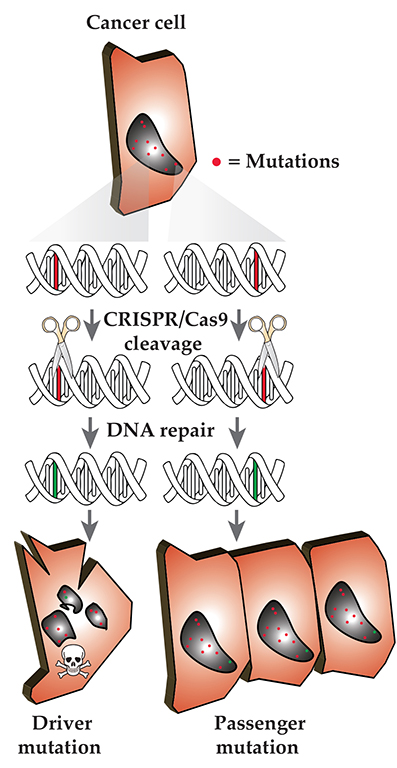29/08/2016
Print PageDKTK Dresden: CRISPR/Cas9 technology to inactivate cancer mutations
CRISPR/Cas9 is likely one of the most revolutionary tools in biotechnology, with tremendous implications for a broad range of biological and medical disciplines. As programmable scissors this technology allows cleavage of DNA at predefined sites in the genome of cells. Now researchers from the National Center for Tumor Disease (NCT) Dresden, the German Cancer Consortium (DKTK) and the Medical Faculty of the TU Dresden have found a way to utilize the technology to diagnose and inactivate cancer mutations, thereby accelerating cancer research.
“Mutations in cancer cells are identified at increasing speed through next generation sequencing, but we mostly do not know, which of these mutations are actually driving the disease and which ones are rather benign” said Frank Buchholz, head of the study that appeared in the latest edition of the Journal of the National Cancer Institute (JNCI). The authors first analyzed how many of the more than 500,000 reported cancer mutations could theoretically be targeted and found that >80% of the mutations could be cleaved with the currently most popular CRISPR/Cas9 system. The research group then demonstrated that they could specifically cleave and inactivate a panel of common cancer mutations without significantly targeting the healthy, wildtype alleles. This approach enabled the researchers to unmask mutations that drive cell growth and viability in cancer cell lines. Buchholz points out: “This is an important advance, because we can now rapidly separate driver from passenger mutations. This is currently a bottleneck in cancer research. Because each cancer shows a specific combination of many mutations, this scientific approach could improve cancer diagnostics as mutations that promote cancer growth could be specifically identified. Based on the obtained results an individualized therapy could be initiated.
Original Publication:
Gebler, C. et.al.: Inactivation of cancer mutations utilizing CRISPR/Cas9. In: J Natl Cancer Inst (30. August 2016). DOI: 10.1093/jnci/djw183
